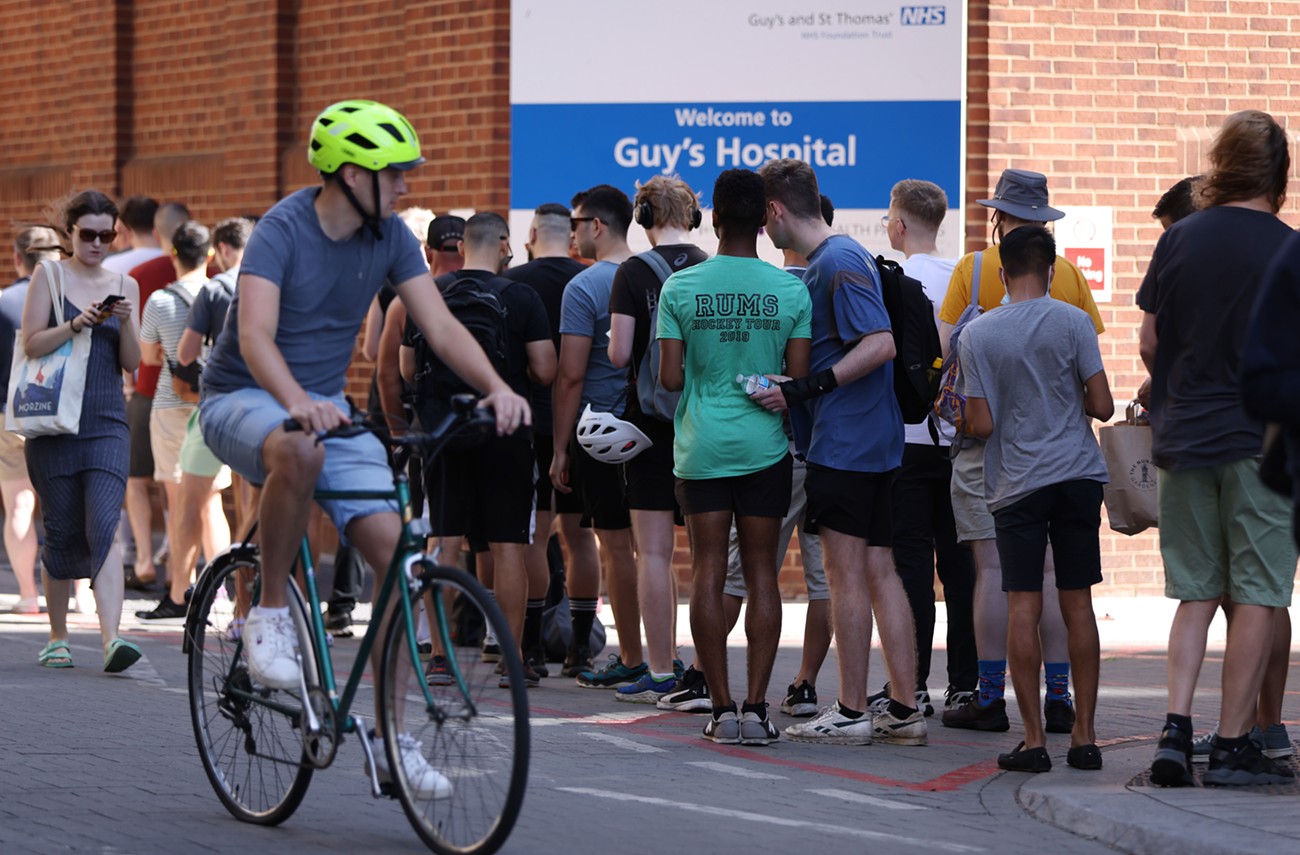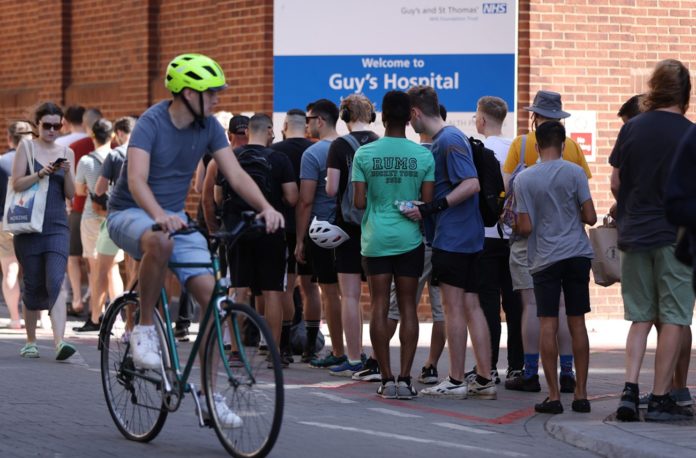
On a press call today regarding monkeypox, Dr. Matthew Golden, director of Public Health at Seattle & King County’s HIV/STD Program and Sexual Health Clinic, offered one major piece of advice: “People should do what they can to protect themselves.” That includes crossing the border into Canada, as many Seattle residents are doing, to get vaccines that are difficult to obtain in the United States.
“Canadians were sufficiently prepared,” Golden said. “I think it’s a reasonable thing that people are doing this.” But he also pointed out that not everyone is at equal risk of infection, and everyone should decide for themselves what level of risk-reduction is right for them. You can reduce your risk of infection without having to travel internationally by limiting close intimate contact for awhile.
Golden also shared a bit more information about monkeypox at the press conference, though none of it changes prior guidance.
Who’s Reporting Infections?
There have been more than 20,000 cases of monkeypox in more than 71 countries so far, including just over 4,000 in the United States and a little over 100 in Washington. Of those, 91 were in King County, where reported cases are approximately doubling each week. All of the cases in King County have been men who have sex with men, though there have been a small number of cases transmitted through other means in other states.
“What we’re up against is a rapidly growing epidemic that continues to be highly concentrated in gay, bisexual and other men who have sex with men,” Golden said, “and is transmitted primarily though close physical contact, particularly but not exclusively sexual contact.”
What’s King County’s Vaccination Plan?
King County is currently monitoring cases and prioritizing vaccination for populations at highest risk. There aren’t many doses to go around, which is why some people have traveled abroad to get treatment in countries with better health care systems: In King County, Golden estimates that there are 20,000 people at higher risk, and in a perfect world he would want 80,000 doses on hand. Currently, they only have 6% of that.
Of the 400-ish doses that King County initially received, virtually all have been administered or distributed to clinical settings. (That is, they’re not just sitting in a box going unused.) We got 3,300 more doses on Wednesday, of which a third is going to sexual health clinics, a third is going to providers, and a third is going to vaccine centers that will be set up in a week or two. There’s no firm opening date or location info about those centers.
Currently, vaccine eligibility is limited to the highest-risk groups, and so vaccines have been provided to clinics and providers that are already in contact with high-risk groups. King County avoided a first-come-first-served approach because those tend not to be equitable or reach the people who need treatment most.
Some other cities established vaccine centers to distribute doses, but they ran out of the vaccine fairly quickly, Golden said. “We’re trying to be a little more targeted,” he explained. “As we get more vaccines, we expect to change what those criteria look like.”
The federal government says that the country will be getting 786,000 more doses sometime in the future, but there’s no date for that, nor information about how they’ll be distributed.
What Does Treatment Look Like?
Treatment for patients is available in the form of a drug known as TPOXX, and although it’s safe for healthy adult humans, data on its efficacy is limited. Not everyone is recommended to receive TPOXX.
The vaccine currently being administered, JYNNEOS, is 85% effective and requires two doses four weeks apart. Partial protection kicks in around the two-week mark after the first dose. If you’ve already had monkeypox, there’s no solid data about post-infection immunity, but other viruses in this family convey fairly long-lasting immunity.
What Should You Do to Protect Yourself?
For now, Golden says existing guidance still holds: People at higher risk for infection should consider decreasing their number of sex partners and close intimate partners in the short- to mid term.
“At the end of the day, we all make our own decisions about what risks we’re willing to take,” he said.







